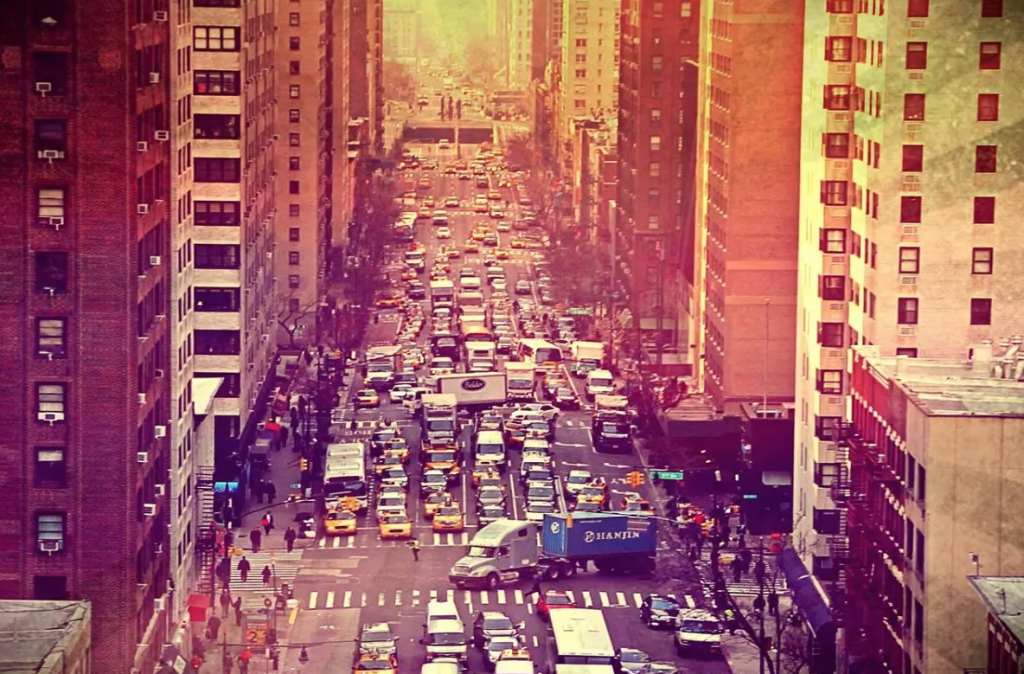Air pollution takes us 2.2 years on average
(Sustainabilityenvironment.com) – Fine particulate matter and other pollutants take away on average 2.2 years of life, but with large regional differences. They range from 1.2 years in Europe to 2.6 years in China, although the Asian giant has recovered two years of life between 2013 and 2020 thanks to more stringent policies on air pollution. The regions where deaths due to poor air quality are most premature are Central and West Africa, South Asia and Southeast Asia, where 5 years of life are lost.
Air Quality Life Index numbers
The annual report prepared by the University of Chicago, the Air Quality Life Index, analyzes the state of air pollution at a global level. For the first time, the projections are calculated on the new WHO thresholds, which last September significantly lowered the limit values considered “safe” for all categories of pollutants. In the case of thinner particulates (PM2.5), the value was halved to 5 μg/m3 on an annual basis while the 24-hour limit fell from 25 to 15 μg/m3.
This latest update has radically changed the global picture. Now almost all of the world’s population (97.3%, that is almost 7.5 billion people) lives in areas where the values of PM2.5 exceed the limits, while with the old parameters this situation concerned “only” 8 people out of 10. The impact of polluted air is particularly strong in Europe and the United States, where it goes from 47.3% and 7.6% respectively to values of 95.5% and 92.8%.
If the impact of air pollution is worse than wars and terrorism
If you look at the years of life lost globally as a result of air pollution, you get a cumulative figure of 17 billion years of life. An amount that assigns to air quality problems the same impact on human health as smoking. The decrease in life expectancy due to pollution is then much heavier than that generated by other risk factors, usually perceived as more urgent or serious. Fine dust takes three times more years than alcohol and contaminated water, six times more than AIDS, and 89 times more than conflict and terrorism.
Read also Pollution deaths, The Lancet alarm: “We’re coming back”
“It would be a global emergency if Martians came to Earth and sprayed a substance that causes the average person on the planet to lose more than 2 years of life expectancy. It’s a similar situation that prevails in many parts of the world, except we’re spraying the substance, not invaders from space,” explains Michael Greenstone, creator of AQLI along with colleagues at the University of Chicago’s Energy Policy Institute.
No lockdown effect
The other fact to underline in this report is the combined, and local, the effect of production blockages and (almost) total lockdowns during the first year of the Covid-19 pandemic.
The impact on air pollution was practically zero. Globally, average PM2.5 values in 2020 fell from 27.7 to 27.5 μg/m3 compared to the previous year. Broadly unchanged.
“The fact that particulate pollution has remained relatively stable, even in a year when economies around the world have stalled due to the pandemic, stresses the immense challenge that air pollution represents and the opportunities to improve human health if strong policies are adopted“, reads the report.
The reduction in pollution levels, therefore, has been mostly temporary, including at the local level. Nevertheless, some countries in 2020 have actually seen a significant decrease in pollutants. This is the case of Indonesia, which scored -20%, Russia, China, Germany and Japan. On the opposite extreme, among the countries where air pollutants have increased the most, we find Nigeria, Turkey, Pakistan, Ethiopia, Egypt, the United States, Thailand and Bangladesh.

